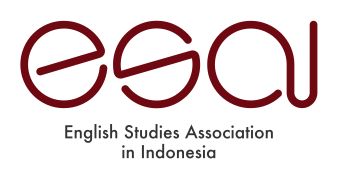Four Basic Skills Proficiency Based on Students' Perception in Hospitality & Tourism Study Program, Bunda Mulia University
Abstract
Wide open employment in the tourism industry leads to the urgent needs for ready to work manpower. In the tourism industry, the readiness of the workforce in addition to the operational skills of the work is the ability of foreign language that is widely used globally in the world, in this case is English. Tourism education institutions as tourism human resources factories not only must prepare operational skills, but also English skills which is important to avoid complaints from graduates’ saying that educational institutions do not provide sufficient English supplies. In order to provide sufficient English supplies, student’s English proficiency should be known at this time along with the reason, to know what can improve student’s spirit of learning, because English for Tourism Purposes (ETP) can not be measured only by tests such as TOEFL / TOEFL / IELTS. The results of this study is expected to be a improvement material to improve the quality of every tourism student’s English in order to prepare graduates who are ready to work in a Global environment.
Keywords: English for Tourism Purposes, Proficiency, Four Basic SkillsFull Text:
PDFReferences
Aydoğan, H., & Akbarov, A. A. (2014). The four basic language skills, whole language, & intergrated skill approach in mainstream university classrooms in Turkey [PDF File]. Retrieved February 8, 2018 from https://www.researchgate.net/publication/262032435_The_Four_Basic_Language_Skills_Whole_Language_Intergrated_Skill_Approach_in_Mainstream_University_Classrooms_in_Turkey.
Bobanovic, M. K., & Grzinic, J. (2011). The importance of English language skills in the tourism sector: A comparative study of students/employees perceptions in Croatia. Almatourisam-Journal of Tourism, Culture and Territorial Development, 1, 10-23.
Coordinating Ministry of Economic Affairs. (2017). Roadmap industrialisasi pariwisata Indonesia 2045. Jakarta: Coordinating Ministry of Economic Affairs.
Hyland, K. (2007). English for specific purposes {PDF File]. Retrieved February 8, 2018 from https://www.researchgate.net/publication/226497899_English_for_Specific_Purposes.
Khuong, C. T. H. (2015). An evaluation of English Teaching and Learning in Tourism Training Programs in Vietnam. International Journal of Arts and Sciences, 8(6), 561-572.
Lamri, C. E. (2016). An introduction to English for Specific Purposes (ESP) [Online lectures for 3rd Year ‘License’ Level]. University of Abou Bekr Belkaid Tlemcen, Faculty of Arts and Languages Department of English. Retrieved February 7, 2018 from https://faclettre.univ-tlemcen.dz/assets/uploads/DOCUMENTS/cours%20en%20ligne/4-An%20Introduction%20to%20ESP%20LAMRI.pdf.
Ministry of Tourism of Indonesia. (2016). Ministry of Tourism’s performance report. Jakarta: Ministry of Tourism of Indonesia.
Umar, H. (2003). Metodologi penelitian untuk skripsi dan tesis bisnis. Jakarta: PT. Gramedia Pustaka.
Zahedpisheh, N., Bakar, Z. B. A., & Saffari, N. (2017). English for Tourism and Hospitality Purposes (ETP) [PDF File]. English Language Teaching, 10(9), 86-94. Retrieved February 10, 2018 from https://files.eric.ed.gov/fulltext/EJ1151526.pdf.
DOI: http://dx.doi.org/10.30813/jelc.v8i2.1097
Refbacks
- There are currently no refbacks.



2.jpg)



